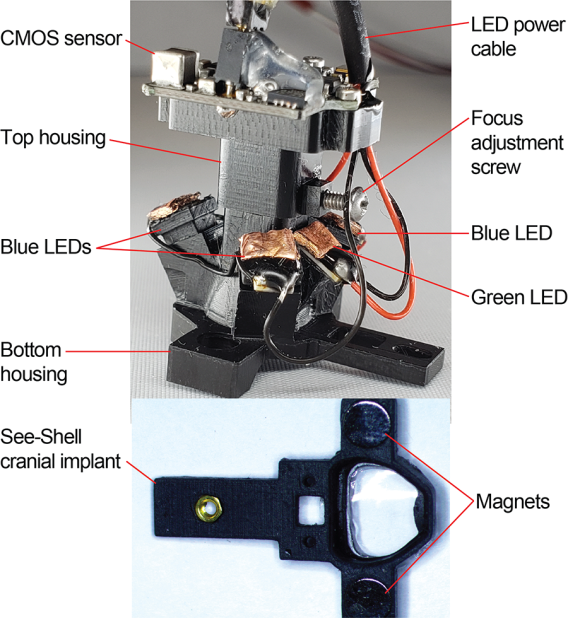Groundbreaking Device Gives New Insight Into Brain Function

ME Assistant Professor Suhasa Kodandaramaiah's lab developed a unique head-mounted mini-microscope device that allows them to image complex brain functions of mice — a groundbreaking study giving new insight into fundamental research that could improve human brain conditions such as concussions, autism, Alzheimer’s, and Parkinson’s disease, as well as better understanding the brain’s role in addiction. The device, known as the mini-MScope, offers an important new tool for studying how neural activity from multiple regions of the outer part of the brain, called the cortex, contribute to behavior, cognition, and perception.
“This device enables us to image most of the mouse’s brain during free and unrestrained behaviors, whereas previous mesoscale imaging was usually done in immobile mice using devices like the MRI or two photon microscopes” said Kodandaramaiah. “This new device allows us to understand how different areas of the brain interact during complex behaviors where multiple areas of the brain are working together simultaneously."
Read the full CSE press release and watch a video of the mini-MScope at work.
